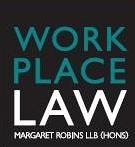Safeguarding Your Workplace: Expert Health and Safety Legal Support
Meeting Your Health and Safety Obligations in Today's Workplace
The Health and Safety at Work Act 2015 has fundamentally changed how New Zealand businesses approach workplace safety. No longer is a dusty manual on the shelf sufficient—employers must now demonstrate an active, ongoing commitment to identifying and managing workplace risks.
At Workplace Law, Margaret Robins brings over 30 years of experience providing practical health and safety legal advice to businesses throughout Auckland and beyond. Her approach combines legal expertise with business realities to help you create safer workplaces while meeting your statutory obligations.
Understanding the Health and Safety at Work Act 2015
The Health and Safety at Work Act 2015 introduced significant changes to workplace safety requirements, including:
- Broader definitions of who holds duties under the Act
- More stringent obligations for officers and directors
- Greater emphasis on worker consultation and participation
- Increased penalties for non-compliance
- Focus on taking "all reasonably practicable steps" to ensure safety
This legislation requires businesses to be proactive rather than reactive in their approach to workplace safety, with a focus on continuous improvement and meaningful worker engagement.
What "All Reasonably Practicable Steps" Really Means
The cornerstone of the Act is the requirement for businesses to take "all reasonably practicable steps" to ensure workplace safety. This includes:
- Identifying potential hazards and assessing their risks
- Implementing appropriate control measures
- Providing adequate training and supervision
- Maintaining safe equipment and work environments
- Establishing emergency procedures
- Monitoring workplace conditions
- Reviewing and updating safety measures regularly
The standard is not perfection, but rather what a reasonable person would do given the likelihood and severity of harm, available knowledge, and the cost and feasibility of controls.
Beyond the Health and Safety Manual
While documentation is important, WorkSafe inspectors and the courts look for evidence that health and safety is embedded in your organisation's culture and practices. This means:
- Active leadership commitment to safety
- Regular safety discussions at all levels
- Worker involvement in safety decisions
- Ongoing hazard identification and risk assessment
- Prompt investigation and remediation of incidents
- Continuous improvement of safety systems
Workplace Law can help you develop not just compliant documentation, but practical systems that work for your specific business context.
When Accidents Happen: Legal Response and Protection
Despite best efforts, workplace accidents can still occur. When they do, your response is critical both for those affected and for your legal position. Workplace Law provides guidance on:
- Immediate response protocols
- Notification requirements to WorkSafe
- Conducting effective internal investigations
- Managing WorkSafe investigations
- Preparing for potential prosecutions
- Implementing corrective actions
- Supporting affected workers
Early legal advice following a workplace accident can significantly improve outcomes for all parties and help prevent similar incidents in the future.
Defending WorkSafe Prosecutions
WorkSafe prosecutions can result in substantial penalties, with fines up to $3 million for companies and $600,000 plus imprisonment for individuals. If your business faces investigation or prosecution:
- Do not provide statements without legal advice
- Preserve all relevant evidence
- Understand your rights during the investigation process
- Consider enforceable undertakings as an alternative to prosecution
- Develop a strategic defence based on "all reasonably practicable steps"
- Prepare comprehensive mitigation if liability is established
Margaret's experience in employment law provides valuable perspective in defending health and safety prosecutions and negotiating with WorkSafe.
Continuous Development of Health and Safety Measures
The law requires ongoing development and improvement of health and safety systems. Workplace Law can assist with:
- Regular reviews of health and safety policies
- Updates to reflect changes in legislation or guidance
- Development of industry-specific safety protocols
- Implementation of learnings from incidents or near-misses
- Creation of meaningful worker participation systems
- Establishment of effective monitoring and reporting processes
This continuous improvement approach not only ensures legal compliance but creates genuine safety benefits for your organisation.
Health and Safety Legal Advice When You Need It Most
Workplace Law has extensive experience guiding businesses through health and safety challenges:
For Employers: Margaret provides strategic advice to:
- Develop compliant health and safety systems
- Respond effectively to incidents and investigations
- Defend prosecutions and minimise penalties
- Create practical safety solutions for specific industry challenges
- Train managers and officers on their personal duties
For Workers: Margaret offers guidance on:
- Rights to refuse unsafe work
- Participation in health and safety matters
- Representation through health and safety representatives
- Remedies for health and safety victimisation
- Compensation following workplace accidents
Take Action Today
If you need expert health and safety legal advice, contact Workplace Law on 027 270 1057. With Margaret's guidance, you can develop effective health and safety systems that protect both your workers and your business.
As the Health and Safety at Work Act 2015 states, "Employers must be prepared to demonstrate to WorkSafe that the health and safety of everyone at work is fundamental to the way the business operates." Workplace Law is well equipped to help you meet this standard.

